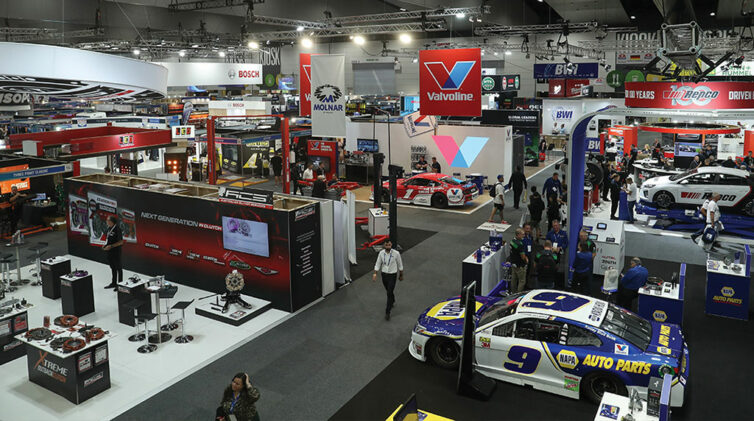KPMG partner and global head of automotive, Dieter Becker, reports that more than 80 per cent of the world’s automotive supply chain is connected to China and that China is now beginning to reopen manufacturing businesses.
“The situation in China is slowly getting better,” he said.
“According to the China Association of Automotive Manufacturers (CAAM), by the last week of February, more than 90 per cent of over 300 automotive parts suppliers outside Hubei had resumed production.
“While all plants are open again, production rates were still low given the dearth of orders from manufacturers and logistics problems.”
The kickstart of China’s car industry comes after vehicle sales in the country fell 18 per cent in January. Then, according to figures published by Reuters from China Passenger Car Association (CPCA) data, only 4909 vehicles were sold in the first 16 days of February. In the same period in 2019, 59,930 cars were sold.
This represents a sales plunge of 92 per cent, with the CPCA stating that customers were refusing to visit a dealership.
“Production shortfalls resulting from supply chain disruptions in China will impact global auto-makers,” Mr Becker said.
“Hubei is one of the four major automobile production bases in China and has more than 100 automotive suppliers.
“Automotive plants in Hubei remained closed until March 11 and have now slowly started reopening.”
Moody’s Investor Service has adjusted its global vehicle sales forecast to be down 2.5 per cent in 2020 instead of a previous 0.9 per cent drop first anticipated with the COVID-19 outbreak. This latest figure from Moody’s represents a loss of production of some 2.5 million vehicles.
But Mr Becker said it now looks in general more like a six-to-eight per cent downturn this year, with knock-on effects into 2021. If the higher end of Mr Becker’s prediction comes to pass the lost global production for 2020 would be of the order of seven million vehicles.
“However, people are not very happy to use public transport which makes the interest to buy cars seem huge,” he said.
He said his view was “very much dependent on the restriction period required to contain the global spread of the COVID-19 pandemic and assumes there will be no subsequent second global wave”.
He said the KPMG Automotive Institute believes in a global restart of the automotive sector in the third quarter of this year.
“The ongoing spread and different reaction to COVID-19 in Europe will delay economic restart, despite the ongoing, slow Chinese economic restart,” he said.
“Existing market vulnerabilities such as trade tensions and declining sales are likely to persist into Q3 given tight inventories – fewer than six weeks – and complex supply chains.
“From our perspective it is most important to see COVID-19 as a global wave, which has to be simultaneously assessed from a global production and sales footprint.
“Companies with a heavy production and sales footprint in China already see a direct impact and will now start a recovery phase.
“But companies with heavy production and sales footprint in mature Asia, Western Europe and North America will be affected when the wave arrives in these regions.”
Volkswagen chief executive Herbert Diess this week warned that car sales had entirely dried up outside of China and that his company’s production shutdown is costing €2 billion ($A3.6 billion) a week in fixed costs running 124 plants and paying for 671,000 staff.
Dozens of car-makers, including Volkswagen, have halted production at most factories in Europe, the US and elsewhere.
Jaguar Land Rover (JLR) was the last car manufacturer to close its UK factories, with its Birmingham and Halewood factories closed until at least April 20, the company said.
It follows Bentley’s announcement on March 20 that it was stopping all production at its Crewe plant until at least April 20.
Honda shut its Swindon factory after the last shift on March 18 after difficulties within the supply chain and for staff welfare. It hopes to reopen the plant, which makes the Civic hatchback, on April 6 but said it will await further guidance from government and medical experts.
BMW has closed its Hams Hall facility and Mini’s Oxford plant. Nissan has closed Sunderland, Rolls-Royce at Goodwood, Toyota at Burnaston and PSA Vauxhall at Ellesmere Port and Luton.
Globally, other major automotive groups that have ceased production at some or all sites include Renault, Skoda, Peugeot Citroen, Volvo, Ford, GM and Fiat Chrysler Automobiles.
In some quarters discussion has emerged that many car-makers will not recover.
Prof Karel Williams at Manchester Business School has been quoted in The Guardian in the UK that British car manufacturing could be fatally impacted by the shutdowns.
“It’s clear from what Volkswagen has been saying that lost sales will not be found again and there will be a massive hit in terms of loss-making in the major car-makers,” he said.
“The markets will recover but the companies will be weakened just when they’re requiring large-scale investments in electrification. That will force them to rethink their portfolios of factories, models and markets.
“The last thing the industry needs is a major disruption to both demand and supply. The more marginal the operations, the model and the market, the more likely things are to be cut.”
By Neil Dowling













 Read More: Related articles
Read More: Related articles

